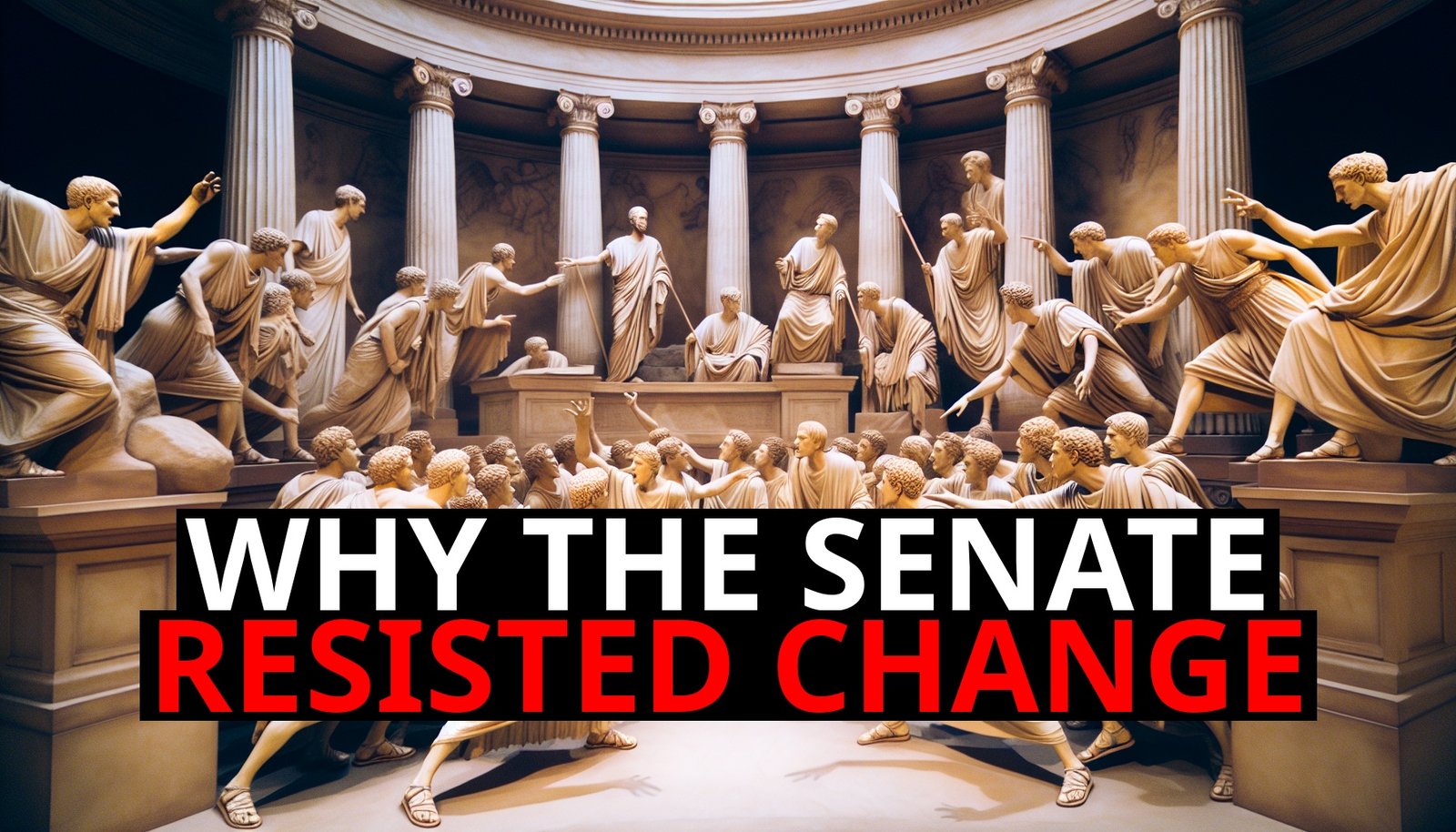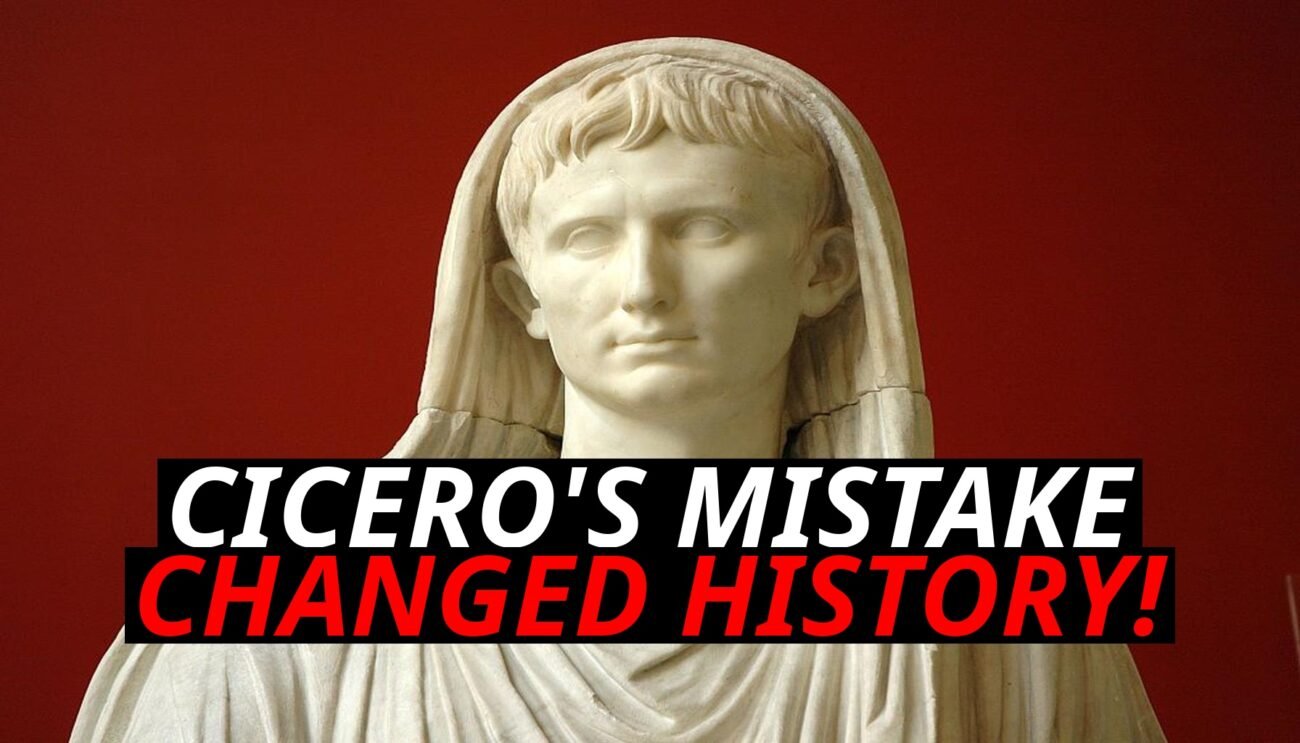For centuries, the Roman Senate was seen as the heart of the Republic—a body of wise statesmen entrusted with safeguarding the interests of the Roman people. Yet, throughout its history, the Senate repeatedly acted in its own interest, resisting any reforms that threatened the wealth and power of the aristocratic elite. From the Gracchi brothers to Julius Caesar, reformers who sought to help the common people were met with fierce opposition, as the Senate proved itself to be an enemy of the very citizens it was supposed to serve.
The Gracchi Brothers: The First Challenge To The Senate’S Power
The resistance to reform began in the 2nd century BCE with Tiberius and Gaius Gracchus, two brothers who attempted to address the growing economic inequality in Rome. Tiberius, elected as tribune of the plebs, proposed a land redistribution law that aimed to break up the vast estates controlled by the wealthy and give land to poor citizens and veterans. The Senate, dominated by the aristocratic landowners who would lose the most from this reform, reacted with hostility.
Rather than engage in debate, the Senate resorted to violence. In 133 BCE, Tiberius was murdered by a mob of senators and their supporters, setting a grim precedent for how the Senate would handle future reformers. Ten years later, his brother Gaius also attempted reforms, including grain subsidies and extending Roman citizenship to more people, but he too was violently opposed. Gaius met the same fate as his brother, driven to suicide as the Senate sent an armed force to suppress his supporters. The Gracchi brothers’ deaths revealed that the Senate was willing to use any means necessary to protect its wealth and privilege.
Marius And The Military Reforms: A New Kind Of Power Struggle
In the late 2nd century BCE, Gaius Marius, a brilliant general and populist leader, introduced military reforms that forever changed the dynamics of power in Rome. He opened the ranks of the Roman army to the landless poor, who had previously been excluded. Marius promised these new recruits land in exchange for their service, but this plan again threatened the Senate’s control over land distribution.
While the Senate grudgingly accepted Marius’s military reforms because of the manpower they provided, they did little to address the underlying economic issues plaguing Rome’s lower classes. The Senate’s refusal to adequately provide for the returning soldiers—who expected the land they were promised—created a new base of discontent. These veterans, loyal to their generals rather than the Senate, would play a crucial role in the rise of military strongmen like Julius Caesar, who could leverage their loyalty for political power.
Sulla’S Dictatorship: The Senate’S Last Attempt To Hold Power
The Senate’s fear of losing control escalated during the time of Lucius Cornelius Sulla. After a bitter power struggle with Marius, Sulla marched on Rome with his army and declared himself dictator. His rule was marked by a reign of terror known as the proscriptions, where his political enemies were systematically killed, and their property was confiscated.
Sulla used his dictatorship to strengthen the Senate’s authority, rolling back reforms and ensuring that power remained in the hands of the elite aristocracy. He restored the Senate’s control over judicial appointments and passed laws to limit the power of the tribunes, the very office meant to represent the people. Sulla’s dictatorship was a temporary victory for the Senate, but it was a short-sighted one. By undermining the popularis movement and concentrating power within the Senate, Sulla laid the groundwork for even greater conflicts that would eventually destroy the Republic.
The Rise Of Caesar: Reform Meets Brutal Resistance
The Senate’s most infamous opponent was Julius Caesar, who came to power in the 1st century BCE with a bold agenda of reforms aimed at helping the common people. Caesar’s career was built on the back of the discontented masses, including soldiers who had been left impoverished by the Senate’s failures. His proposed reforms included land redistribution, debt relief, and citizenship for many of Rome’s allies in the provinces.
The Senate’s reaction to Caesar was predictable. Fearing the loss of their control over wealth and power, the Senate branded him a tyrant and took extreme measures to undermine his authority. Caesar’s growing popularity, particularly among the urban poor and his loyal legions, threatened the Senate’s traditional dominance. In response, Caesar’s opponents, including Pompey and many other influential senators, sought to strip him of his military command and force him to return to Rome as a private citizen—effectively ending his political career.
Caesar’s crossing of the Rubicon River in 49 BCE marked his defiance of the Senate’s authority and ignited a civil war that would ultimately bring about the fall of the Republic. Despite his eventual assassination in 44 BCE, Caesar’s reforms and his challenge to the Senate’s corruption left a lasting impact, as the Republic would never recover from the internal strife and power struggles that his rise exposed.
The Senate’S Role In The Fall Of The Republic
Throughout the history of the Roman Republic, the Senate consistently positioned itself as an obstacle to reform. Whether it was the land reforms of the Gracchi brothers, the military changes of Marius, or the broad social and political reforms of Caesar, the Senate’s priority was always the protection of its own privilege. Instead of evolving to meet the needs of a growing empire and an increasingly dissatisfied population, the Senate clung to tradition and elitism, even when doing so meant the Republic’s eventual collapse.
The Senate’s refusal to address the grievances of the Roman people—from the rural poor to disenfranchised veterans—paved the way for the rise of dictators and emperors. While the Senate continued to fight for its survival, it became clear that it no longer represented the people, and in fact, had become their enemy. By resisting reform at every turn, the Senate sowed the seeds of its own destruction, leading to the end of the Republic and the dawn of the Roman Empire under Augustus.
In the end, the Senate’s failure to embrace reform transformed it from the guardian of Republican values into the symbol of the decay and corruption that brought down one of the greatest political systems in history.













